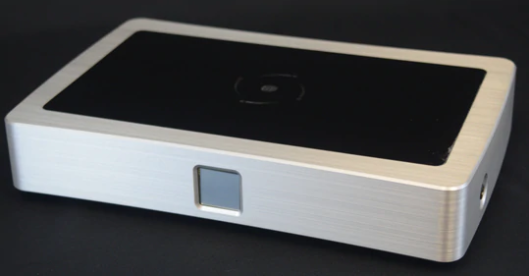‘If You’re Watching This…We’re Dead’
If you try to go to the website of Exogal, a high-end digital electronics manufacturer, you’ll end up at a YouTube video titled, “If you’re watching this, we’re dead.” The video consists of Exogal CEO Jeff Haagenstad looking directly into the camera and explaining to viewers that the company has died..and why that happened. It’s a cautionary tale for all manufacturers who are universally buffeted by supply chain issues – especially the worldwide, multi-industry chip shortage.
See more on how the supply chain took down Exogal
“How did we die? In kind of a tragic and uniquely pandemic way,” a somber, if somewhat cheeky, Jeff Haagenstad answered rhetorically at the beginning of the 3-minutes, 39-second video where he lays out his explanation of what killed Exogal. He introduces himself as the “ex-CEO” of the company as he launches into what is likely a description of a nightmare that, to varying degrees, most manufacturers are currently facing – especially the secondary and tertiary ones with typically more limited resources.
Haagenstad knows that for many in the industry, this will seem like an abrupt action. But as is usually the case, he tells the story of how this situation has developed over the course of the pandemic, a two-year saga.
Tech Industry Manufacturers Can Feel Exogal’s Pain
“There’s no way this can last for 2 years,” Exogal’s owners initially thought. But they were wrong…it did last two years.
Those in manufacturing will feel Haagenstad’s pain. The extraordinary challenges of supply chain issues, especially the chip shortage, was one of the factors that recently led to Onkyo Corp. shuttering and bankrupting two of their divisions.
Those not in manufacturing will get a rare opportunity to peek behind the curtain of how products are made. I don’t want to give the whole video away, you should hear the story from Haagenstad’s perspective in his own words [see the video below]. But the CEO does a good job of explaining how small manufacturers like Exogal use credit lines to buy parts. (By the way, this is true of medium and large manufacturers as well.)
Credit Lines, The Grease that Keeps the Gears of Commerce Turning
Credit lines are the lifeblood of small manufacturers. They’re difficult to get, and difficult to keep active. These credit lines allow us to buy parts, then you build stuff, sell it, and pay back the line. It’s like a revolving charge account at a department store.
Jeff Haagenstad, YouTube video explaining how the supply chain killed Exogal
As Haagenstad explained, manufacturers – large and small alike – rely on credit lines to buy the parts that they use in the manufacturing process. These parts are then used to build finished goods – the products to be sold to dealers and/or end-users. When those products are sold, revenues are generated, the profits of which are used, in part, to pay off the credit lines used to buy the parts in the first step. Rinse, and repeat.
And Suddenly…Everything Changed
This is the way the electronics manufacturing world has turned for many decades. As long as the supply chain is running smoothly, then everything works out just fine. Then, in comes 2020, and with it the COVID-19 coronavirus pandemic. And suddenly…everything changed.
Do you get a sense of where this is going?
With the parts shortage killing their ability to build and sell products, the company was ultimately forced to shut down. They can’t pay their bills. They can’t pay their rent. Their creditors’ patience ran out and everything was repossessed. “We were evicted. We owe people money. I get yelled at a lot.”
Exogal IP is Intact…and Available
But…not everything is gone. Haagenstad says they still possess their intellectual property (IP)…they still have all their code…and they still have all their designs and design files. Basically, they still have all the core elements they “need to reconstitute the company if someone wanted to fund the effort or purchase those assets.”
Interested in acquiring Exogal’s IP? Reach out to: jeff@haagenstad.com.






Exogal was having major problems at least a year prior to the pandemic. Ask Jeff about the line of four servers he advertised on his website that never saw production. They spent time and effort on these only to decide they were unsuitable for the market. Ask about the applications that were supposed to run the Comet but vanished so consumers were stuck looking at its tiny, unreadable screen.. For a price of over 3k one might expect fewer glitches. The CEO needs to get an MBA because engineering ability isn’t enough to survive in a tough, competitive market.